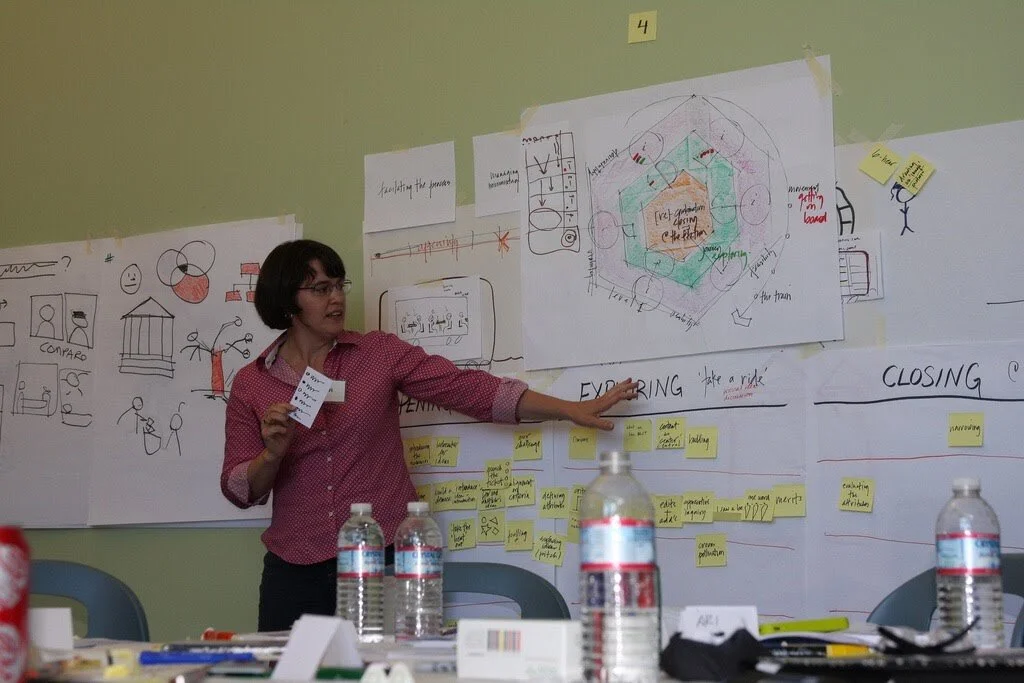Play school: games for education
by Angela Stockman
Angela is facilitating Education Expeditions beginning November 8, 2021 and April 4, 2022
Click here for more info
Hey, Gamestormers! What a privilege it is to introduce myself in this space. I’m Angela Stockman--an Instructional Designer, teacher, and professional learning facilitator from Buffalo, New York. I’ve been Gamestorming with teachers and students in K-12 public, private, and charter schools for quite some time, and I’m pretty stoked to be co-facilitating Education Expeditions this fall!
Here’s how I might Gamestorm my way through any given week:
Empathy Mapping helps teachers get a greater sense of who their students are, what matters to them, where their interests and pain points lie, and which needs and opportunities their curriculum might address. When we begin unit or lesson design with Empathy Mapping, we increase the likelihood of designing learning experiences that are not merely aligned to standards but also meaningful and relevant to learners. I use Empathy Mapping to serve teachers better, too. We’re better able to create a shared vision for our work together this way.
The Market Opportunity Navigator helps us Gamestorm our way through authentic assessment design as well. I’m all for dreaming big, but it’s easy to cook up projects and plans that just aren’t feasible for any number of reasons. This game helps us generate a bunch of beautiful options and then rapidly evaluate them.
The Cyclical User Journey is a powerful tool for teacher teams who are ready to test the potential of a newly designed lesson, unit, assessment, or other learning invitation from students’ perspectives. Each teacher assumes the role of a student who has embarked on this learning journey, considering these four things: How the student became aware of the learning experience, what was rolling through their mind before they committed to the experience, which motivating factors sealed the deal on their commitment to the process, and what works to sustain their engagement as they move through it.
Affinity Mapping helps us make meaning from the qualitative data we gather along the way, too. Teachers take care to document what they see and hear on single sticky notes throughout the unit, we spill those findings onto tables, walls, or even sections of a floor, and then, we begin to cluster, categorize, and draw conclusions that help us notice students’ strengths and needs. We always uncover something unexpected--and essential--this way.
These are just a handful of Games that make for better teaching and professional learning facilitation. I know we have a healthy population of educators in this group, and I’m looking forward to sharing more of these translations especially for you. Reach out if you’d like to chat more, too. I hope to see you at our next Education Expedition in November.
Angela is facilitating Education Expeditions beginning November 8, 2021 and April 4, 2022



